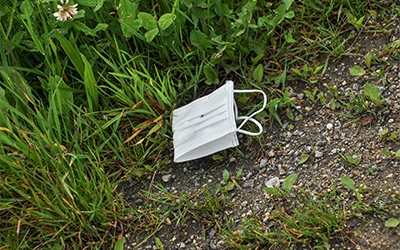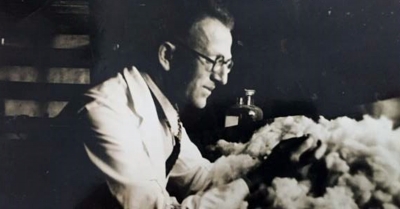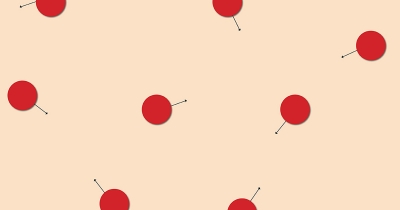Commentary
If the Covid-19 pandemic has taught us anything, it is that there has never been a better time to respond to the climate crisis than now. The global nature of Covid-19 has made it clear that global issues need a coordinated response and can easily affect the welfare of every human being on earth. The virus has shown us that it is absolutely crucial to listen to the science. Governments, in responding to epidemiological forecasts, have rapidly spent hundreds of billions of dollars on welfare subsidies, enforcing social distancing, protective equipment, mental health services, and vaccine research.
... (read more)Susan Ryan was a formidable storyteller. Her stories communicated her values and her world view, her commitment to the pursuit of a more egalitarian society. Hers was a powerful form of communication, capable of questioning and challenging the inadequacies of the masculinist, class-exclusive ‘fair go’ of postwar Australian society.
... (read more)On 14 November 2019, Behrouz Boochani arrived in New Zealand, to feature in the WORD Christchurch literary festival. In so doing, Boochani, the Kurdish-Iranian writer, detained – or, in his words, exiled – by the Australian government for six years, finally escaped his ‘Manus Prison’. The details of his resettlement remained unclear, but it didn’t matter; he simply wanted to be ‘free for a while’. Around the world, on broadcast and social media, thousands celebrated Boochani’s ‘long flight to freedom’. This followed his award-winning book No Friend But the Mountains (2018), an autobiographical novel typed on his mobile phone using WhatsApp, one passage at a time. Smuggled from Manus in thousands of PDF files, it was translated from Farsi into English by his Iranian-Australian collaborator, Dr Omid Tofighian. For Boochani and those concerned with the plight of asylum seekers and refugees, his escape offered a rare moment of exultation.
... (read more)Who would have guessed that a rejuvenation of regional difference might be triggered by a plague? Cosmopolitan Melbourne became the epicentre of what Prime Minister Scott Morrison has called the ‘Victorian wave’. Borders, the leitmotif of Australian politics since Tampa, suddenly became internal. My own state of Western Australia was sued for breach of the Australian Constitution for maintaining its ‘hard’ internal borders. Wonted barbs flowing between states now felt just a little personal. Interstate rivalry in Australia is not uncommon, with familiar stoushes over GST share, the Murray– Darling Basin, the location of naval shipbuilding, and the hosting of sporting events. But the idea that Australia has internal borders, not just to check fruit but to stop the movement of people, Australian people, is something that has only emerged with Covid-19.
... (read more)Recently a large cockroach appeared on the reputation and memory of my late father, Hirsch Munz (HM), suggesting that he was the mastermind of a second Soviet spy ring, not exposed in the Petrov Affair, from the time he was placed in Australia by Soviet military intelligence in the late 1920s to the 1950s. Despite this slur, he was a good man: his Australian Dictionary of Biography entry outlines his contributions to Australian agricultural science and to English and Yiddish letters. My father having died in 1978, there is no legal recourse to counter this untrue, gratuitous, and defamatory speculation about him. Fortunately, a historian friend alerted me to these allegations in John Fahey’s book Traitors and Spies: Espionage and corruption in high places in Australia, 1901–50 (Allen & Unwin, 2020) before they were publicised in an illustrated article in the Melbourne Herald Sun, its companion podcast, and an interview on ABC Radio. I was therefore able to promptly deny the allegations in the next day’s edition of that paper.
... (read more)Belated recognition of Australian prose poetry
Until recently, Australian prose poetry hasn’t attracted much attention – we’re not sure why. Having written prose poetry for years, we’re both fascinated by the form, which can be loosely defined as poems written in paragraphs and sentences rather than in stanzas and lines.
... (read more)While on the campaign trail against Hillary Clinton in 2016, Donald Trump appeared to deviate from a scripted speech he was delivering in Dimondale, Michigan. What followed was remarkable: ‘At the end of four years, I guarantee you that I will get over ninety-five per cent of the African-American vote. I promise you.’ Undaunted by six decades of black voting behaviour and his own poor standing with African-Americans, not to mention the fact that he had yet to defeat Clinton, Trump promised a ‘new deal for black America’ that would spark a decisive black shift to the Republican Party. African-Americans had long been the nation’s most partisan racial group: since 1964, no Republican presidential candidate had won more than thirteen per cent of the black vote, and no Democrat less than eighty-two per cent. Yet Trump, a man with a long and divisive racial history, vowed that he would soon rival Barack Obama for electoral appeal among African-Americans.
... (read more)The problem of belonging: The Twitter mob is a threat to writers and journalists
In early August, deep in the winter of Melbourne’s stage-four discontent, journalist Rachel Baxendale became the story. The Victorian political reporter for The Australian newspaper was attacked online for questioning Premier Daniel Andrews on his government’s hotel quarantine program, as an explosion of new coronavirus infections caused unprecedented economic shutdown and the curtailment of civil liberties. As thousands of people watched the premier’s live press briefings from their living rooms, Baxendale assiduously probed Andrews about the use of security guards instead of Australian Defence Force personnel to guard returned travellers.
... (read more)‘Healthy People Gather for Your Freedom.’ So read the sign held proudly aloft by a young woman at a protest against coronavirus restrictions on ‘Freedom Day’ in Melbourne. Drawn to the Shrine in a symbolic gesture of solidarity with those other ‘diggers’ who defended Australia against the threat of authoritarianism, she was part of a small crowd with a big message: ‘Freedom is under threat’. A bit like coronavirus itself, perhaps, ‘Freedom Day’ was an accident waiting to happen – not least of all in Victoria. No democratic government can expect to curtail freedoms without stirring up the civil libertarians (both the sane and the crazy), and the restrictions devised and enforced by the Andrews government have been more severe than most. If one is to believe former prime minister Tony Abbott, the premier of Victoria now heads up a ‘health dictatorship’ that holds five million Melburnians under ‘house arrest’. Daniel Andrews, though in truth a champion of social justice, has of late acquired the disagreeable moniker of ‘Dictator Dan’ for putting a plague city into lockdown.
... (read more)Those of us who work in classical music will be familiar with the accusation that our chosen art form lacks contemporary social relevance. It is one with a long pedigree. ‘Sonata, what do you want of me?’ asked an exasperated Fontenelle in 1751, according to Rousseau. But you will find no widespread or heightened disdain for worldly affairs among classical musicians on the whole. Rather, any apparent reticence they may have describing how their art connects with the world at large stems from the fact that it is notoriously difficult to do. As the well-known quip goes, ‘Writing about music is like dancing about architecture.’ This is not a love that dare not speak its name so much as one that struggles to be put into words at all.
... (read more)





